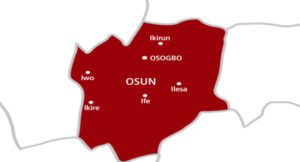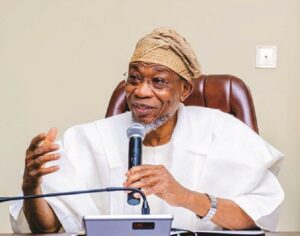
The Gay Outlaws!
By: Taiwo Kolawole Hassan
In her article titled: The Emergent Queer: Homosexuality and Nigerian Fiction in the 21st Century, LINDSEY GREEN-SIMMS of the American University began with this first salvo, saying;
“In Wole Soyinka’s 1965 novel The Interpreters, the African American professor Joe Golder, perhaps one of the most well known gay characters in African literature, says to the Nigerian journalist Sagoe, “Do you think I know nothing of your Emirs and their little boys? You forget history is my subject. And what about those exclusive coteries in Lagos?” (199). Though the two men are in Nigeria, where Golder is teaching African history, Sagoe claims ignorance: “You seem better informed than I am. But if you don’t mind I’ll persist in my delusion” (199).
What prompts Golder’s history lesson on the existence of homosexuality in Nigeria is Sagoe’s assertion that while America might be full of perversions, Nigeria is a “comparatively healthy society” (199). Golder’s response to Sagoe has been discussed in many of the key studies of African literature and homosexuality such as Chris Dunton’s pioneering “Wheyting Be Dat? The Treatment of Homosexuality in African Literature,” which was published in 1989 and remains one of the most comprehensive essays on the subject; Neville Hoad’s African Intimacies: This content downloaded from 5.71.199.250 on Sat, 05 Jun 2021 06:37:57 UTC All use subject to ht 140 RESEARCH IN AFRICAN LITERATURES VOLUME 47 NUMBER 2 Race, Homosexuality, and Globalization, one of the first book-length engagements with African discourses of homosexuality; and Gaurav Desai’s influential essay “Out in Africa.” On the one hand, these critics agree that Joe Golder is typical of many of the homosexual characters that appear in African literature….”
She went on to point out and I quote;
“Since 2003, at least twenty-five films have been released that feature characters involved in same-sex affairs or relationships. While these films, many of which star A-list Nollywood celebrities, make visible relationships that are most often underground, they do so by casting homosexuality in a negative light and have arguably helped to legitimate laws that criminalize homosexuality. Gay characters are portrayed as murderous and lecherous, often involved in other vices such as prostitution and witchcraft, and they are almost always a direct and clear threat to heterosexual marriages. Nollywood has only three possible endings for these characters: they are either killed off, imprisoned, or become born again Christians who return to heterosexuality and denounce their sins. In this way, gay characters are erased and denied agency and, at the same time, shown to be appropriately punished… “
This kind of erasure of traits of homosexuality, Lesbianism and LGBT tendencies are what is intended to become the norm (in my opinion) when the Nigerian government took a position on this moral matter of the sexuality of its citizens. President Olusegun Obasanjo, first attempted to ban the LGBT people in 2007 but he failed then. There was so much international pressure against his attempt at the time.
However, seven years on, on January 7, 2014, Nigeria’s former president, Goodluck Jonathan, signed the Same-Sex Marriage (Prohibition) Bill (SSMPA) into law. The notional purpose of the SSMPA is to prohibit marriage between persons of the same sex. In reality, its scope is much wider. The law forbids any cohabitation between same-sex sexual partners and bans any “public show of same sex amorous relationship.”
The SSMPA imposes a 10-year prison sentence on anyone who “registers, operates or participates in gay clubs, societies and organization” or “supports” the activities of such organizations. Punishments are severe, ranging from 10 to 14 years in prison. Such provisions build on existing legislation in Nigeria, but go much further: while the colonial-era criminal and penal codes outlawed sexual acts between members of the same sex, the SSMPA effectively criminalizes lesbian, gay, bisexual, and transgender (LGBT) persons based on sexual orientation and gender identity.
An Executive Director of an Abuja NGO, in October 2015 stated “Basically, because of this law the police treat people in any way that they please. They torture, force people to confess, and when they hear about a gathering of men, they just head over to make arrests.”
Another Executive Director of a Minna, Niger State NGO, in October 2015 also stated; “Vigilante groups have added homosexuality to their “terms of reference.” These groups are organized by community members, given authorization by the community to maintain some sort of order and “security.”
The present outcome is that so many Nigerian youth have fled from Nigeria since then to the United Kingdom, Ireland, United States of America and other places seeking refuge and compassion is available to them. Many of such people whose claim have been disbelieved are forced to flee underground in those refuge countries, living in destitution and poverty but able to live their sexual lives as they want to. Failed asylum seekers are afraid of deportation but they are not afraid of being persecuted or prosecuted for their sexuality.
Some have committed suicide over this matter, preferring to die rather than be deported back to Nigeria. Some have fallen in love with other gay people they met abroad and are facing whatever life brings together. It is noteworthy that the intended ‘erasure’ did not happen and is not happening as far as my research and personal interviews show even in Nigeria today. Anti LGBT laws only drove it underground.
There is the case of two homosexuals partners, one and Olakunle Oriyomi Onigbanjo and Olatunde Badmus, who are both Muslims. They are from Lagos but met in London as asylum seekers in March 2013. They became lovers. They are both from very respectable families in Lagos. However, they have been disowned by their families and were sent packing from the local Mosques in Lagos. They were said to have been beaten publicly, flogged and shamed. Olatunde said he and his partner had similar experiences. They are deemed as misfits in Islam.
They are considered ‘Kufars,’ in other words ‘worthless dogs’ or similar connotation. They are unbelievers that is. Not worthy of being a Muslim. Their lifestyle is ‘Harram’ and not applauded. I interviewed Olatunde for this article. He is a broken man, afraid for his life, feels unworthy, abandoned and stated that suicide is always on his mind.
It is clear to me that many of these men and women may never, ever see their homeland again. They are lost forever and if they should return, there will be no warm welcome party, no love, no compassion and no freedom. Arrest by the Police is guaranteed.
The truth is that there is not enough soap in Nigeria to wash away the stigma and shame of homosexuals, lesbian or gay people, nor is there a magic soap that can reverse the signature of President Jonathan Goodluck from the Nigerian statute books.
The stroke of pen swung on 07 January 2014 has sealed and defined the destiny of the Nigeria LGBT peoples.
Take a good look at their faces and keep your sons away from them!
It is more than accurate to say; They are gay outlaws! They are a disgrace to Nigeria, no doubt and they are abominations by choice.
What a shame!



